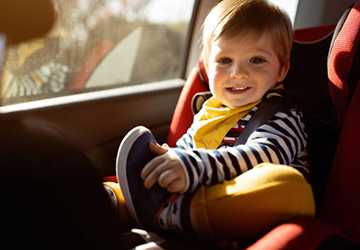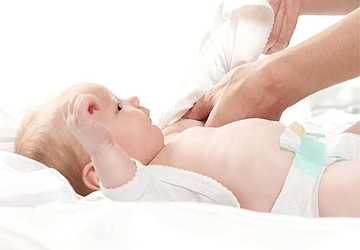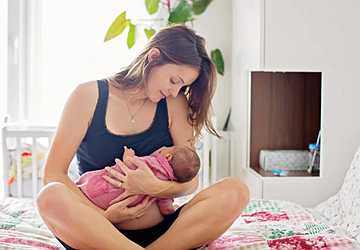Explore our comprehensive guide on 'Top 10 safe Sleep Practices for Infants'. Learn how to provide a safe and relaxing space for your newborn to sleep, minimizing potential harm and maximizing healthy development.
In the exciting journey of parenthood, understanding 'Top 10 safe Sleep Practices for Infants' is crucial. Sleep is not just a time for rest but also a significant aspect of an infant's health and development.
As a parent, creating a safe sleep environment can often seem daunting, but it's an essential step in protecting your baby from risks such as Sudden Infant Death Syndrome (SIDS). With our in-depth guide on 'Safe Sleep Practices for Infants,' we aim to empower you with knowledge, helping you create a nurturing, secure sleep atmosphere for your little one.
Let's delve into the top 10 safe sleep practices that every parent and caregiver should know about.
1. Constantly Returning to Bedtime
The 'Back to Sleep' practice is fundamental in infant sleep safety. No matter if your kid is sleeping during the day or night, you should always put them to sleep on their back. This is the safest posture for babies, and it also dramatically lowers the risk of SIDS.
Even if your baby has started to roll over, always lay them on their back initially. This guideline is a cornerstone of safe sleep practices and is endorsed by healthcare professionals globally.
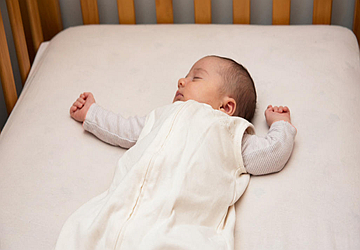
2. Choose a Firm Bed or Mattress
The mattress you pick for your baby's crib is one of the most critical factors in ensuring his or her safety. Your infant should sleep on a flat, solid surface, such as a crib safety mattress, with a snugly fitting sheet over it.
Soft surfaces can contour to the baby's face and obstruct breathing, increasing the risk of suffocation.
This includes fluffy padding, waterbeds, or couches. By choosing a firm sleep surface, you align with the recommended newborn sleep guidelines, contributing significantly to your baby's safety.
3. Room-Sharing Without Bed-Sharing
Room-sharing, where your baby sleeps in your room but on a separate surface, is one of the highly recommended safe sleep practices. This arrangement reduces the risk of increasing os SIDS by 100 of 50 percent. It also makes feeding, comforting, and monitoring your baby during the night easier. A crib, bassinet, or portable crib with a firm mattress in the parents’ bedroom is the suggested setup for the first six months to a year of the baby's life.
4. Don't put anything soft or flimsy in the baby's crib.
A cardinal crib safety rule is to keep the sleeping area free from soft objects and loose bedding. Pillows, quilts, comforters, soft toys, and loose blankets can cause asphyxia, entanglement, and sudden infant death syndrome. An uncluttered crib with a fitted sheet is the safest place for a newborn to sleep. Use a sleep sack or other wearable blanket that won't slide over your baby's head instead of loose blankets.
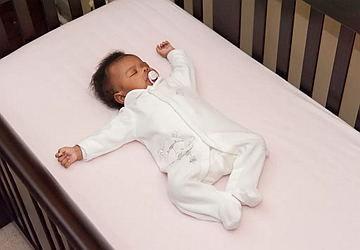
5. Think about giving a pacifier before bedtime.
Once breastfeeding is firmly established, introducing a pacifier during naptime and night can improve newborn sleep safety.
Infants who use pacifiers are less likely to die from sudden infant death syndrome. After your infant has fallen asleep, it is not necessary to re-insert the pacifier if it slips out.
6. Breastfeeding is recommended
One of the significant baby sleep tips suggested by healthcare professionals is breastfeeding. There is evidence to show that breastfeeding can reduce the incidence of sudden infant death syndrome by roughly half.
Try to breastfeed your baby exclusively or feed with expressed milk for the first six months, aligning with the World Health Organization's newborn sleep guidelines.
7. Avoid Smoke Exposure
Avoiding smoke exposure, both during pregnancy and after birth, is an essential aspect of infant sleep safety. The risk of sudden infant death syndrome is significantly increased by smoking. It can have detrimental effects on the baby's overall health. This is one of the critical baby sleep tips endorsed by health experts globally.
8. Avoid Alcohol and Illicit Drug Use
Safe sleeping habits include not using alcohol or drugs, both before and after giving birth. These substances can increase the risk of SIDS and harm your baby's overall health. By staying substance-free, you are taking a significant step toward ensuring your baby's safety and well-being.
9. Avoid Overheating
Overheating poses a risk to infants; hence, ensuring your baby is not overdressed or covered with heavy blankets is essential in infant sleep safety. Dress your baby in light sleep clothing and maintain a comfortable room temperature. This baby sleep tip aligns with the newborn sleep guidelines that aim to create a safe sleep environment.
10. Follow Healthcare Provider’s Guidance
Be sure to get your baby vaccinated, have regular checkups, and put him or her down for naps and sleep at the times recommended by his or her doctor. The early detection and treatment of health problems is made possible through routine medical monitoring. Substantial data also suggests that immunization helps prevent sudden infant death syndrome.
Understanding Infant Sleep Patterns
Understanding the baby's sleep patterns is an often-overlooked part of infant sleep safety. Infants' sleep cycles differ from adults', affecting how they sleep and their safety.
Newborns have 50-minute cycles of activity and calm sleep. Active sleepers twitch, groan, and flutter their eyes. Dreaming happens during this sleep state. The baby breathes consistently, moves a little, and wakes up less during calm sleep. These sleep stages grow into adult REM and non-REM sleep.
Infant sleep safety requires understanding and respecting your baby's sleep cycles. Doing so can assist your infant in obtaining enough sleep and reduce the likelihood of sleep disruptions or unnecessary waking. It's another crucial infant sleep advice for the crib and sleep safety.
Conclusion
Understanding and adhering to these safe sleep practices for infants is integral to ensuring your baby's well-being. By implementing these newborn sleep guidelines, you're fostering a safe and comforting sleep environment for your little one. Restful nights for your baby translate to peace of mind for you, nurturing a loving atmosphere for the entire family.


